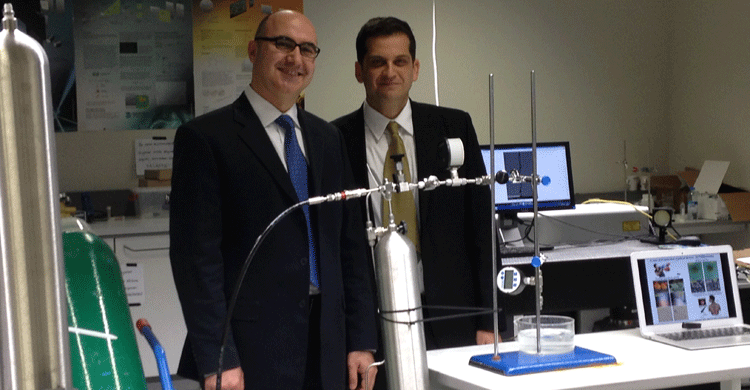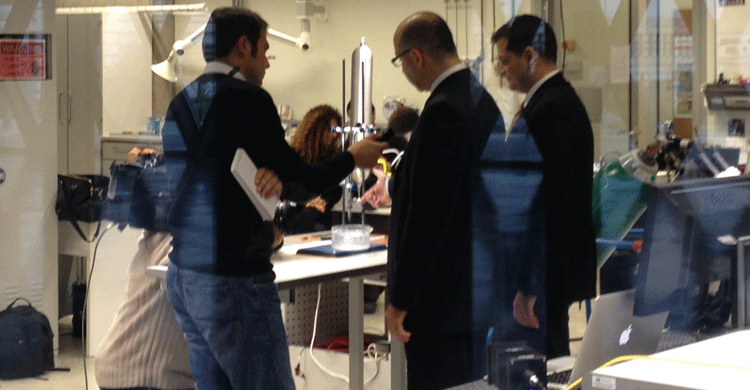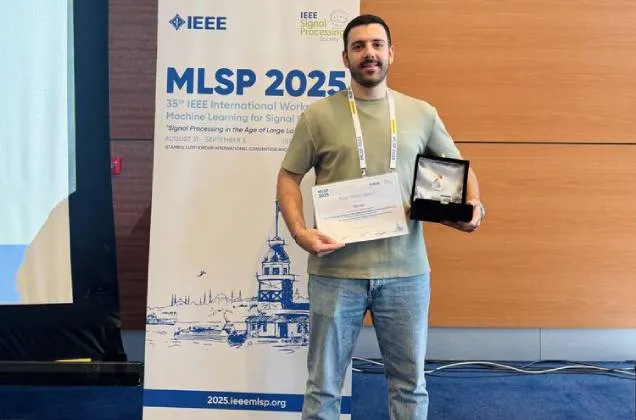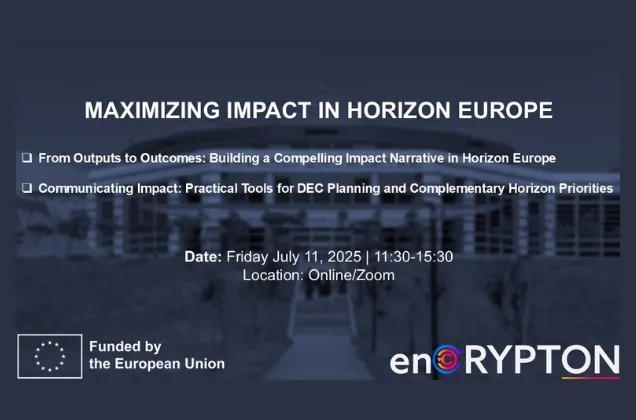04/02/2015
The SUTAB project implemented by internationally recognized Sabancı University faculty members Ali Koşar and Devrim Gözüaçık led to the design of a device that uses micro cavitation technology, or the erosive power of bubbles obtained by cavitation, to eliminate kidney stones, prostrate growth, cancer and tumors without harming the patient.

Doç. Dr. Devrim Gözüaçık - Doç. Dr. Ali Koşar
Sabancı University Faculty of Engineering and Natural Sciences members Professor Ali Koşar and Professor Devrim Gözüaçık and their teams used the erosive power of water micro-bubbles obtained by the cavitation method to design a medical device that eliminates kidney stones, prostrate growth, cancer and tumors.
The water gun-like device named SUTAB (Sabancı University Tissue Ablation with Bubbles Medical Device) is a breakthrough in the treatment of kidney stones, prostrate growth, cancer and tumors. The device targets cancer cells and tumors without harming healthy tissues and cells, and provides an affordable and completely harmless method of cancer treatment.
The technology behind SUTAB
The micro cavitation technique uses the high levels of energy obtained when bubbles formed as a result of lowered water pressure collapse to target and eliminate cancer cells. This causes no harm to healthy tissues and eliminates cancer cells only. By targeting the erosive power of bubbles precisely, the same technology may be used to eliminate tumors, kidney stones and prostrate growth.
SUTAB will be the first device of its kind to be manufactured in Turkey. SUTAB will provide an affordable and completely harmless method of cancer treatment. The medical use of hydrodynamic cavitation, the principle behind SUTAB, is patented to Sabancı University scientists, which gives the device competitive edge worldwide. With the integration of SUTAB to an endoscopic probe, Turkey will have its first multifunction cancer treatment device developed with native patented technologies.
Significant contributors to the development of a robotically controlled endoscope as part of the project are engineers Professor Mustafa Ünel and Professor Asıf Sabanovic of Sabancı University; urologist and surgeon Professor Sinan Ekici of Maltepe University; pathologist Professor Işın Doğan Ekici, MD of Yeditepe University and engineer Professor Hüseyin Üvet of Yıldız Technical University. Also contributing to the project are Sabancı University's molecular biology experts Dr. Özlem Oral and Dr. Cenk Kığ.

About Ali Koşar
Professor Ali Koşar is a member of the Sabancı University Faculty of Engineering and Natural Sciences’ Mechatronic Engineering Program. He is one of the leading researchers worldwide on next-generation micro-fluid systems. His field of research encompasses boiling heat transfer, micro-and nanofluidic systems, and cavitation. He aims at contributing to the literature by removing the lack of information about micro/nano scale heat transfer and fluid flow and providing experimental data and design guidelines for futuristic cooling and microfluidic system technologies. He has broad experience and knowledge on various types of experiments on heat and fluid flow and phase change phenomena in micro/nano scale. He has over 50 articles published in pestigious journals covered by International Citation Indexes, and has received more than 800 citations. He also has over 50 conference papers published in peer-reviewed international conference proceedings, and has four pending patent applications. He received many national and international awards including “Turkish Academy of Sciences Outstanding Young Scientist Award,” “METU Professor Mustafa N. PARLAR Education and Research Foundation Research Incentive Prize,” “Feyzi AKKAYA Scientific Events Support Fund Eser Tümen Outstanding Achievement Award,” “TÜBITAK (Turkish Scientific Council) Incentive Award,”, “9th Kadir Has Promising Scientist Award,” international “ASME (American Society of Mechanical Engineers) ICNMM (International Conference on Nanochannels, Microchannels and Minichannels) Early Career Award,” “Academy of Sciences Young Scientist Award” and international “ASME (American Society of Mechanical Engineers) MEMS (Microelectromechanical System) Best Paper Award.”
About Devrim Gözüaçık
Associate Professor Devrim Gözüaçık is a doctor of medicine, a member of the Sabancı University Faculty of Engineering and Natural Sciences’ Molecular Biology, Genetics and Bioengineering Program, and an expert on molecular cell biology, genetics and cancer biology. In his research lab at Sabancı University, he works on “autophagy” – one of the key cellular-level responses of the body to stress and disease, and trains new scientists. Autophagy disorders are an element of many significant diseases including cancer, Alzheimer’s, Parkinson’s, diabetes, cardiac disease, paralysis and infections. The Devrim Gözüaçık lab is Turkey’s first and only lab that actively focuses on autophagy. Globally recognized inventions achieved in the Gözüaçık Lab are used to gain insight into diseases incorporating autophagy disorders, and to develop targetable and innovative drugs and medical devices that have fewer adverse effects. Devrim Gözüaçık has over 40 articles published in journals covered by International Citation Indexes, and has received more than 2500 citations, has written chapters for 10 different scientific books, and was invited to over 50 international conferences in Turkey and abroad. He has three patent applications as a result of his work in Turkey. Devrim Gözüaçık was named among the “20 Guiding Leaders of Biosciences” by the Hoffmann-La Roche pharmaceutical company. His work was recognized with "European Molecular Biology Organization Award,” “Turkish Academy of Sciences Outstanding Young Scientist Award,” “Istanbul Kültür University Professor Önder Öztunalı Science Award” and “Journalists’ Society of Turkey Sedat Simavi Grand Prize for Medical Sciences.” Dr. Gözüaçık is an editor of the US-based Autophagy journal, which is the leading periodical in the field of autophagy, and a member of the Board of Directors of the New York-based International Cell Death Society (ICDS). He is a reviewer for many national and international research organizations including Cancer Research-UK, Wellcome Trust (UK), The Health Research Board Ireland, Research Foundation Flanders, FWO (Belgium) and TÜBİTAK. He is married with 2 children.
By: Melek Sarı
Photo Credit: Berna Özkul
Video Credit: Türker Soner




